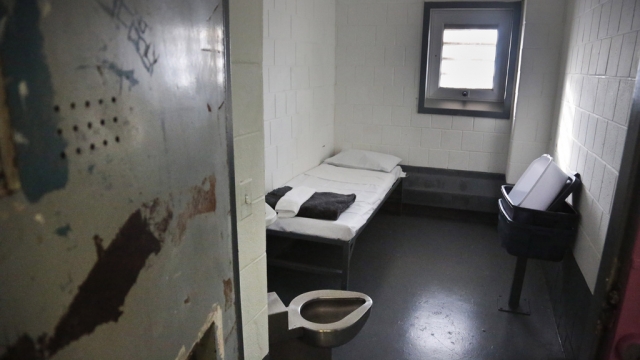
For some, the vote today to end the use of solitary confinement is personal.
“I spent 1,168 hours on Rikers “die-land,” and I spent 1,122 of those hours in solitary confinement,” Candie Hailey-Means from Jails Action Coalition recalled.
Many can still remember the isolation they felt decades later.
“No sunlight, no human contact, deprived of your basic dignity — your nights are spent with rodents, and the light never turns off and you start to question your reality,” explained Johnny Perez, the director of U.S. Prisons for the National Religious Campaign Against Torture.
Victor Pate, who has worked on reforming New York jails since his release 25 years ago, said he has an obligation to those who are still behind bars.
“We are going to get this bill passed. We are going to relieve the suffering of our fellow human beings,” Pate said.
The banning of solitary jail confinement in New York — in the largest American city — is part of a nation-wide campaign to end the practice.
That includes the infamous Rikers Island, a facility where nine inmates have died in the state’s custody just this year and which is under threat of a federal takeover to reform the complex.
Pate says he visits Rikers Island twice a month and knows firsthand the need for this legislation.
“I call it torture island,” Pate said. “How could I not have been in the belly of the beast, come out and not articulate and amplify what happens to those people?”
Despite the horror stories, Mayor Eric Adams and the union representing city jail officers have lobbied hard against the bill.
“We are not there to harm anyone. We come to provide for our families, and that’s all we want to do. We want to come to work and go home safely,” a member of the Correction Officers’ Benevolent Association said during a 2022 New York City Council meeting.
Officers who work at Rikers Island say this measure will make an already dangerous job more risky.
In an op-ed published in AMNY, a board member of the union claimed, “punitive segregation is not solitary confinement,” adding the practice is used to “separate violent offenders.”
The union also claims over 6,500 correction officers have been assaulted by violent inmates over the last three years.
Despite this, the New York City Council overwhelmingly approved the measure Wednesday.
The bill does still allow solitary confinement for a four-hour “de-escalation period” during an emergency with mandatory 15-minute checks.
For Pate, the change is long overdue. He believes if they can end the practice in the country’s biggest city, then maybe the rest of the country will follow suit.
“That’s not what ‘correction’ is supposed to be about,” he said. “I have an obligation, and I guess until my number gets called, I’ll be doing this work.”
This post was originally published on this site be sure to check out more of their content.








